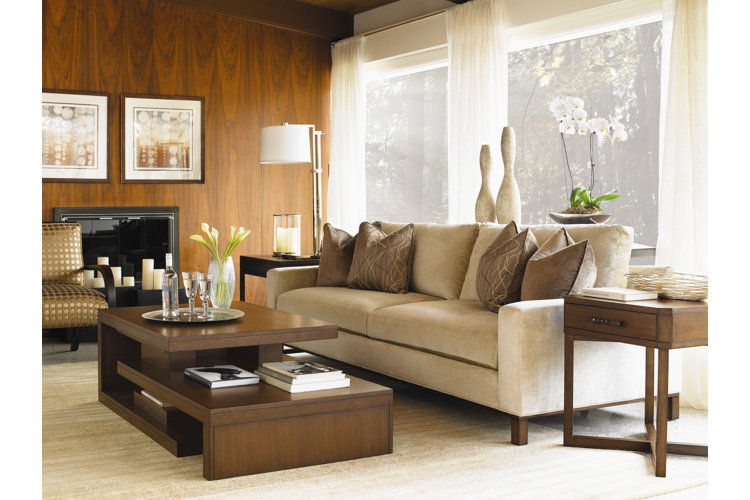What Colors Go With Brown?
Short answer: pretty much everything.
Neutrals
Jewel Tones
Pastels
Metallics
Brown is a beautiful color that can be utilized in several areas of interior design. At first glance, it may seem like a boring color, but you can choose to style brown in bold or subtle ways. Use it as a smooth backdrop in your paint color or flooring, or accent your room with furniture, wall art, and other decor. Here are some examples of the many colors that go with brown.
Neutrals
Other Browns: Don't be afraid to play different shades of brown against each other. Match hues for a dynamic color scheme that won't make the room appear flat. Try mixing walnut floors with a camel colored couch and sand throw blanket.
Black & Gray: Black and gray are the perfect sophisticated combination for a moody and classic atmosphere that is easy to execute.
Cream & White: For a lighter alternative, use an opposing color like cream for a soft blend (think coffee and creamer) or a bright white for crisper contrast.
Blue: The closest to brown's complementary color, dark sapphire appears especially striking in opposition to dark browns that have hints of orange and red. For example, a blue velvet fabric with wooden legs make a luxurious pair.
Green: Deep greens are very reminiscent of a vintage feel when they're matched with browns. Channel the art deco era with an emerald green settee set in intricate wood detailing.
Red: The vibrancy of a deep red shade brings out the warm undertones in lighter browns, making a statement instead of neutralizing the colors.
Yellow: Accessorizing brown with yellow is a great way to brighten up the space without being too jarring. Pigmented are the key to ensuring you don't wash out the space using shades like: mustard, citrine, dandelion, or goldenrod, to name a few.
Orange: Brown and orange blend together, for a more cohesive with an earthy vibe. The almost seamless transitions between shades make for a cohesive space without being monochromatic. You can also use textured fabrics like area rugs or pillows to add depth to the space.
Rose & Lavender: Darker woods like mahogany complement pastels tinted with pink or purple. Add a third color like yellow or gold accents for an extra emphasis and contrast. Set against clean, white or cream walls brown is particularly distinct.
Green & Blue: Cool tones like sage and storm mimic foil colors found in nature. Imagine the sky against a lush landscape dotted with trees. You could even combine the shades for a mint or turquoise and brown palette.
Copper: The orangey color in copper emphasizes the orange undertones found in most browns. Placing a copper accent, such as a chandelier, over a brown dining table creates a harmonious look without being overwhelming.
Gold & Brass: Closer in tone to a yellow color, decorating with gold/brass and brown brings a spotlight to certain features like lamps – making them especially bright in a brown room.
Silver: You can achieve a similar modern look of the gray and brown scale by swapping in silver statement pieces. Create a trendy space complete with a gray couch and ottoman against a brown rug and silver hardware like curtain rods or picture frames.
Matte Black: Mixing a dark metal and a raw wood result in a dramatic juxtaposition of texture and color. Bedframes and side tables that feature brown and matte black elements bring just the right balance of rustic and contemporary to the room.

